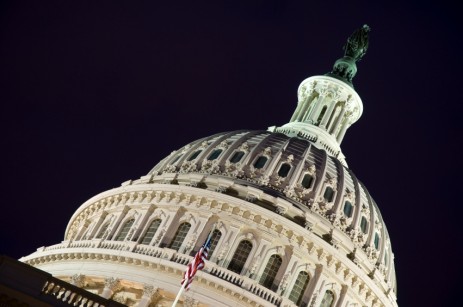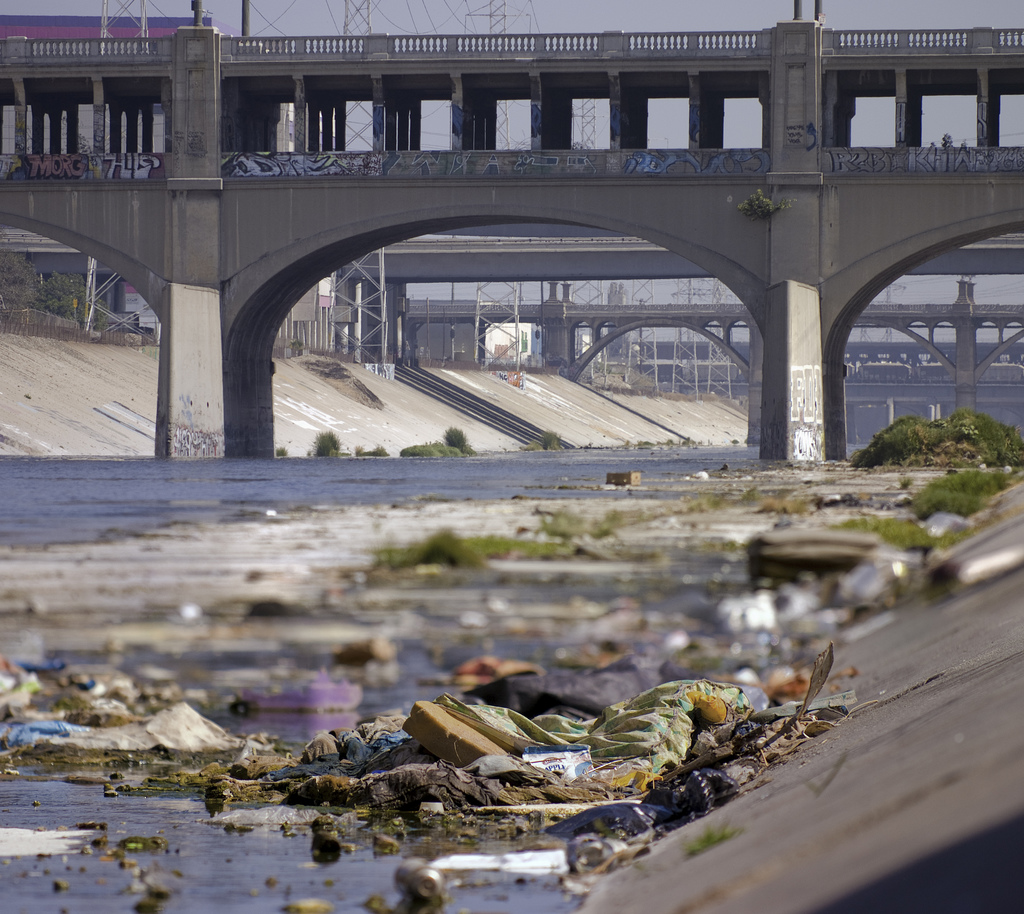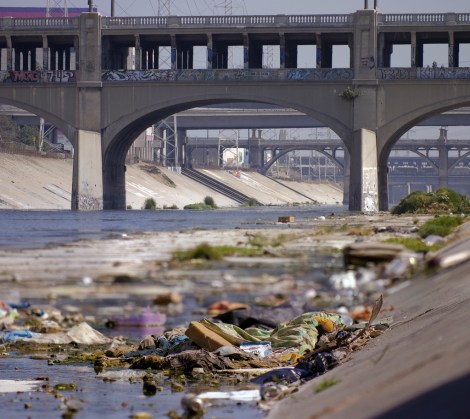A new, green future awaits the concrete drainage ditch that we know as the Los Angeles River. But it may have to wait for quite a while.
The Army Corps of Engineers, which originally poured all that concrete about 80 years ago (thanks for nothing, dudes), is teaming up with city engineers on a $10 million study of the potential for restoring the river’s ecosystem, creating wetlands for animals and hang-outs for people. From The Wall Street Journal:
The study examines an 11-mile stretch of the river on the city’s east side, where some resilient plants have survived in a narrow, muddy strip of so-called soft bottom at the center of the channel.
Efforts to manipulate the river’s concrete form without losing its flood-control function will be a “delicate balancing act,” said Josephine Axt, the Corps’ local planning chief who is leading the study, known as Alternative with Restoration Benefits and Opportunities for Revitalization, or Arbor.
It’s like “setting the table,” said Omar Brownson, executive director of the L.A. River Revitalization Corp., which coordinates economic-development projects along the river. “We’re creating a more attractive destination for investment.”
Yes, well, what’s a revitalized habitat without the business it attracts? I guess?
The Corps is expected to present the results of the study to the public in June. But that public might not take so kindly to the Corps and their master plans by then. Just last month, the Corps razed dozens of acres of the river’s wildlife habitat along the Sepulveda Basin, seriously pissed off the local water agency, violated the Clean Water Act, and potentially also violated endangered species protections.
State Sen. Kevin de León, one of several local officials who has demanded an explanation from the Corps, said the Sepulveda project “doesn’t bode well” for the future of efforts to revitalize the Los Angeles River’s natural landscape.
The Journal plays down the “Sepulveda incident” with this weird statement: “The federal interest, the public’s desires and a noticeable change in recent years in the way Los Angelenos view the river have cushioned the blow of the Sepulveda Basin shearing.”
If anything, the wetlands razing may just motivate the public to push the Army Corps harder to get this one right.
But even if the Corps cleans up its act, Los Angeles has a long way to go to clean up its river, which watchdog groups have found is periodically contaminated by mercury, arsenic, cyanide, lead, and fecal bacteria.
Earlier this month, the Supreme Court ruled that L.A. area governments were not responsible for the polluted water that flows through storm drains and into the Los Angeles and nearby San Gabriel Rivers. But, fearing further litigation and fines (lead! fecal bacteria!), the county is looking at less painful ways to fund the clean-up. It is now considering an “ambitious” property tax to pay for pollution remediation, at about $54 per house, and up to $11,000 per big box store, per year. Not surprisingly, it is not terribly popular with the locals.
Without the cash to pay for the infrastructure to filter the water, these are going to be some dirty, dirty wetlands indeed.





